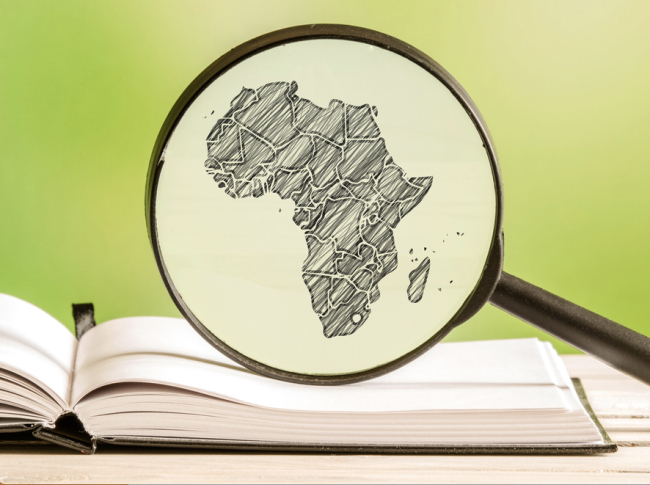South Africa and the Arab Spring: opportunities to match diplomacy goals and strategies

This paper highlights how the Arab Spring magnified a two-dimensional gap in South Africa’s foreign policy. First that South Africa does not have a vision which reconciles demands for achieving the goals of protecting human rights, sovereignty, and multilateralism; second, that its strategies do not meet set goals. The paper then provides tentative explanations to this gap. It ends by elaborating what in the “African Awakening” and in the midst of the Arab Spring are opportunities for South Africa to overcome this gap.
What the Arab Spring is remains to be fully understood; yet, its main feature, is that it encompasses a wide range of social processes that resulted in revolts against ruling regimes. Many African societies have for over thirty years been engulfed by social protest and/or anti-regime revolts – processes coined the “African Awakening”. This Awakening shares the Arab Spring’s underlying causes: economic marginality, political exclusion, and feelings of dispossession. Africa, thus, is fertile for outbreaks of region-wide militarized violence.
Negative externalities from the Arab Spring, especially the movement of combatants and arms across porous borders, and a demonstration effect that popular revolts can bring down entrenched regimes are very likely to escalate African conflicts. There is a sense of urgency because security instabilities will have a dampening effect on the economic boom which Africa is witnessing: this boom holds the potential for far-reaching positive transformations towards sustained growth and inequality eradication. Africa does not have strong regional security architectures to deal with such externalities. Expectations are high that South Africa will act in such an environment. And Pretoria taking region-wide action is actually in its own interest to help it realize its foreign policy goals.
South Africa’s foreign policy goals have been rather stable since 1994: it sees itself as a regional leader that values safeguarding the sovereignty of African states and also sees the need to achieve regional stability and peace. South Africa seeks to safeguard the norm of sovereignty from infringement, especially by more powerful states. There is also a moral dimension related to respect for human rights and popular empowerment which is very dear to a South Africa proud of its struggle against Apartheid. Strategies to achieve such goals include coordination with African states and other allies, ensuring respect for human rights and through multilateralism and institution-building which guard state sovereignty.

Available in:
Regions and themes
ISBN / ISSN
Share
Download the full analysis
This page contains only a summary of our work. If you would like to have access to all the information from our research on the subject, you can download the full version in PDF format.
South Africa and the Arab Spring: opportunities to match diplomacy goals and strategies
Related centers and programs
Discover our other research centers and programsFind out more
Discover all our analysesGabon: Has an — Almost — Exemplary Transition Produced a New Political Model?
In two rounds of voting, on September 27 and October 11, 2025, the citizens of Gabon elected the members of both their local councils and the new national assembly. This marked almost the final stage of political transition, little more than two years after the coup d’état that had overthrown the more than five decades old dynastic regime of the Bongos — Omar, the father, who died in office in 2009, and then his son Ali, who is now in exile.
Claiming "The People": Youth Booms, Ailing Authoritarians and "Populist" Politics in Kenya, Uganda, and Tanzania
This study analyses the emergence of so-called “populist” political tendencies in three East African countries: Kenya, Uganda and Tanzania. It builds its analysis on a wider discussion of the term “populism”, its use and applicability in (eastern) African settings before going on to examine the drivers of three cases of populism: William Ruto’s 2022 election victory in Kenya and the “Hustler Nation”; Bobi Wine’s opposition to Yoweri Museveni in Uganda; and John Magufuli highly personal style of government in Tanzania.
The Contradictory Impacts of Western Sanctions on Economic Relations between Russia and Sub-Saharan Africa
How does Russia maintain economic ties with Africa despite Western sanctions? An analysis of investments, trade, and the circumvention strategies deployed by Moscow.
The Revenue Sources Sustaining Sudan’s Civil War. Lessons for the year 2023
Wars require money and resources, and often, most conflicts involve controlling sources of income and supply lines or denying them to enemies. This has been the case in Sudan’s past conflicts and is again as the civil war—between the Sudan Armed Forces (SAF), commanded by General Abdelfattah al-Burhan, and the paramilitary Rapid Support Forces (RSF), commanded by General Mohammed Hamdan Daglo “Hemedti” —has sunk into a protracted conflict.










